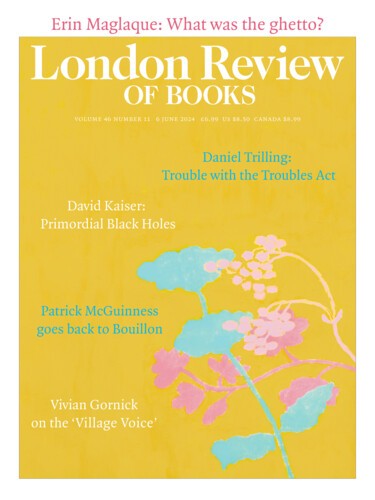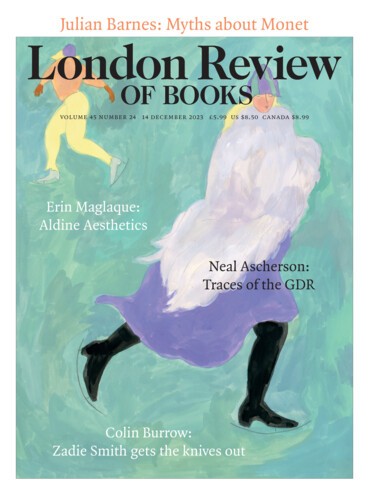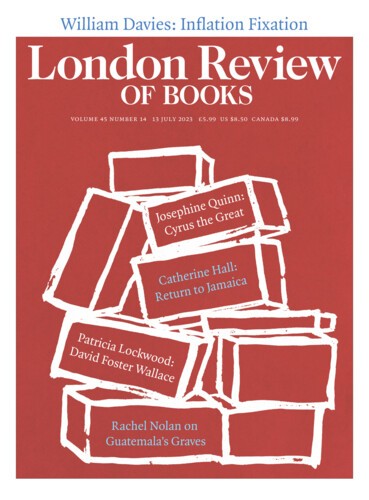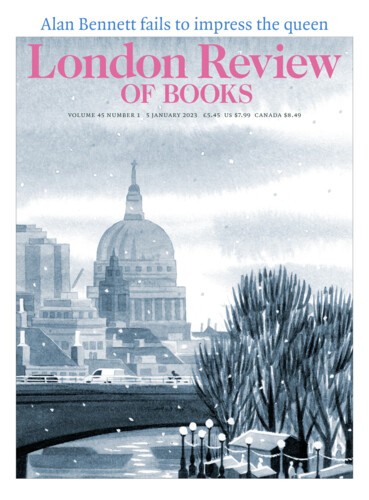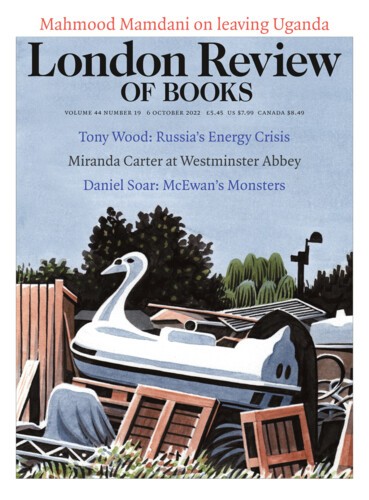Havering and Wavering: Colm Tóibín’s ‘Long Island’
Blake Morrison, 6 June 2024
Novelists don’t usually care for screen adaptations of their work. But the film versions of Atonement, The Remains of the Day and The English Patient do no great disservice to the books. And Colm Tóibín wasn’t unhappy with Nick Hornby’s screenplay for Brooklyn, despite two big changes to the ending. In the novel, when the insidious Enniscorthy shopkeeper Miss...
